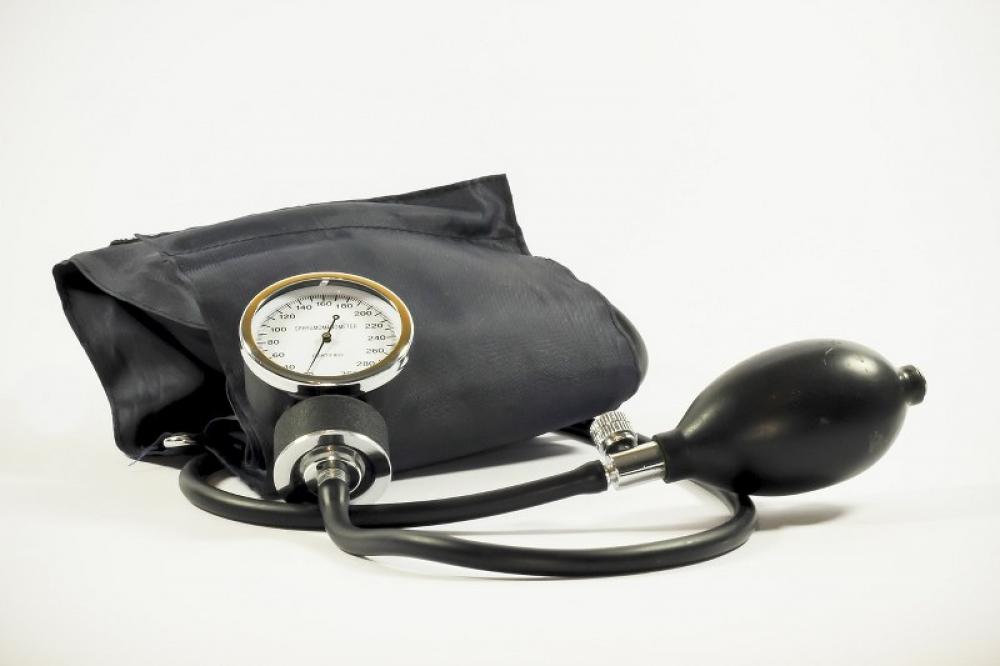Just Earth News | @indiablooms | 21 Aug 2023, 06:30 am Print
 COVID19
COVID19 Photo Courtesy: Pixabay
Dallas: An analysis of electronic medical records for more than 45,000 people found that COVID-19 infection was significantly associated with the development of high blood pressure, according to new research published today in Hypertension, an American Heart Association journal.
“While COVID-19 is typically more severe in patients with preexisting high blood pressure, including higher rates of hospitalization and mortality compared to people with normal blood pressure, it is unknown whether the SARS-CoV-2 virus may trigger the development of high blood pressure or worsen preexisting hypertension,” said senior study author Tim Q. Duong, Ph.D., professor of radiology and vice chair for radiology research and associate director of Integrative Imaging and Data Science at the Center for Health and Data Innovation at Albert Einstein College of Medicine and Montefiore Health System in New York City.
This retrospective observational study is the first to investigate the development and risk factors associated with persistent high blood pressure in people with COVID-19 infection compared to influenza, a similar respiratory virus.
According to the 2017 ACC/AHA Guideline for the Prevention, Detection, Evaluation, and Management of High Blood Pressure in Adults, hypertension is classified as having top and bottom numbers greater than or equal to 130/80 mm Hg.
Health data were analyzed from electronic medical records at the Montefiore Health System in Bronx, New York, which serves a large, racially and ethnically diverse population.
The study included 45,398 people with COVID-19 — hospitalized between March 1, 2020 and February 20, 2022 — and 13,864 people with influenza without COVID-19 — hospitalized between January 2018 and February 20, 2022 — who returned to the hospital system for any medical reasons within an average follow-up period of six months.
The analysis found:
21% of people hospitalized with COVID-19 and 11% of those who were not hospitalized for COVID-19 developed high blood pressure, compared to 16% of people hospitalized with influenza and 4% of those not hospitalized for influenza.
People hospitalized for COVID-19 were more than twice as likely and those not hospitalized are 1.5 times more likely to develop persistent hypertension compared to people hospitalized and non-hospitalized with influenza, respectively.
People infected with SARS-CoV-2 who were over 40 years old, Black adults or those with preexisting conditions, such as chronic obstructive pulmonary disease, coronary artery disease or chronic kidney disease, had an elevated risk of developing high blood pressure.
Persistent high blood pressure was more common among people infected with SARS-CoV-2 who were treated with vasopressor and corticosteroid medications during the pandemic.
“Given the sheer number of people affected by COVID-19 compared to influenza, these statistics are alarming and suggest that many more patients will likely develop high blood pressure in the future, which may present a major public health burden,” Duong said. “These findings should heighten awareness to screen at-risk patients for hypertension after COVID-19 illness to enable earlier identification and treatment for hypertension-related complications, such as cardiovascular and kidney disease.”
The authors noted that the people in the study were primarily from communities with low socioeconomic status, which may increase their susceptibility to developing high blood pressure after COVID-19 infection.
Other factors may also have contributed to the development of high blood pressure in the study patients, including the effects of isolation, psychosocial stress, reduced physical activity, unhealthy diet and weight gain during the COVID-19 pandemic.
Researchers also noted that longer follow-up studies will be needed to determine whether the effects of COVID-19-related complications on the heart and blood pressure regulation may resolve on their own, or if there may be long-lasting effects on patients’ cardiovascular systems.
The study’s limitations included that findings were restricted to people who interacted with the health system during the follow-up period and who might be more likely to have severe COVID-19; the possibility that some patients had undiagnosed high blood pressure; the possibility that vaccine status, which might affect severity of COVID-19 illness, may not have been captured in the health care system database if COVID-19 vaccines were administered outside of the system; and the potential for unintended patient selection bias in a retrospective analysis.
- Alarming projection: Global breast cancer cases could cross 3.5 million by 2050, shows study
- Exam stress to emotional distress: Study reveals the dark side of academic pressure
- Vegetarian diet linked to lower risk of five major cancers, study finds
- Ukraine’s health system under fire: Attacks spike 20% in 2025, WHO warns
- A dog’s loving lick turned deadly — She woke up without her limbs





-1763561110.jpg)
